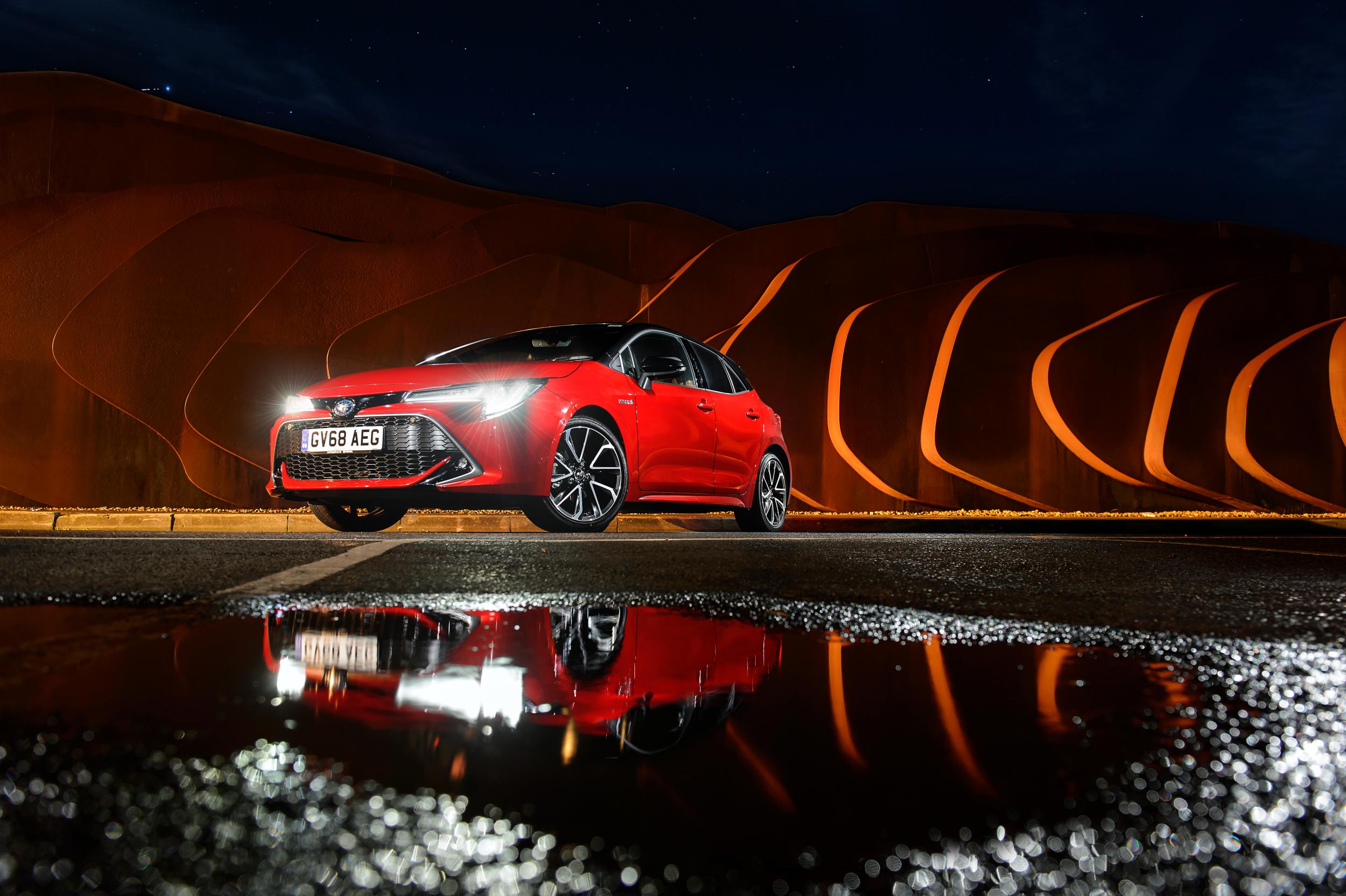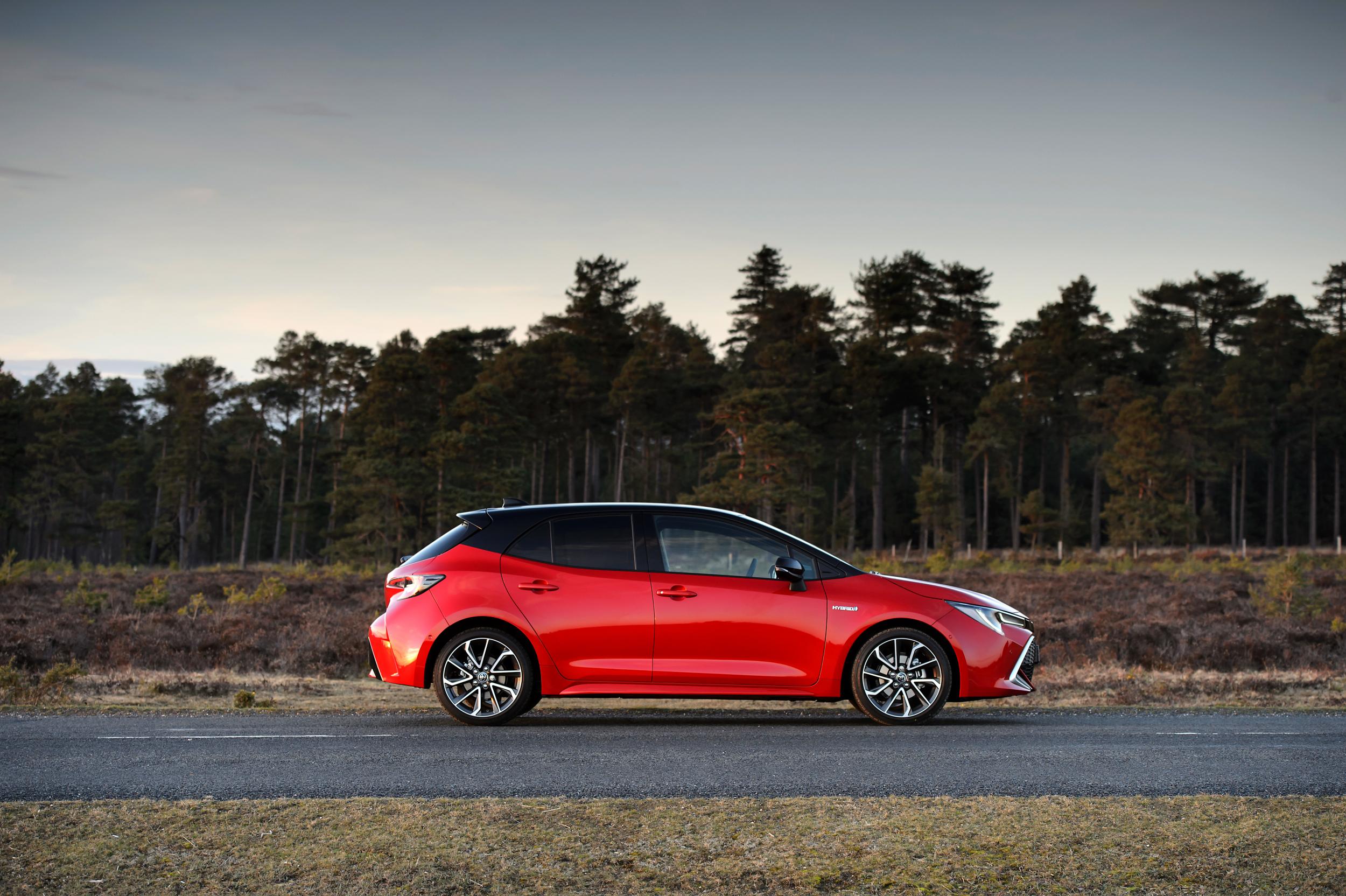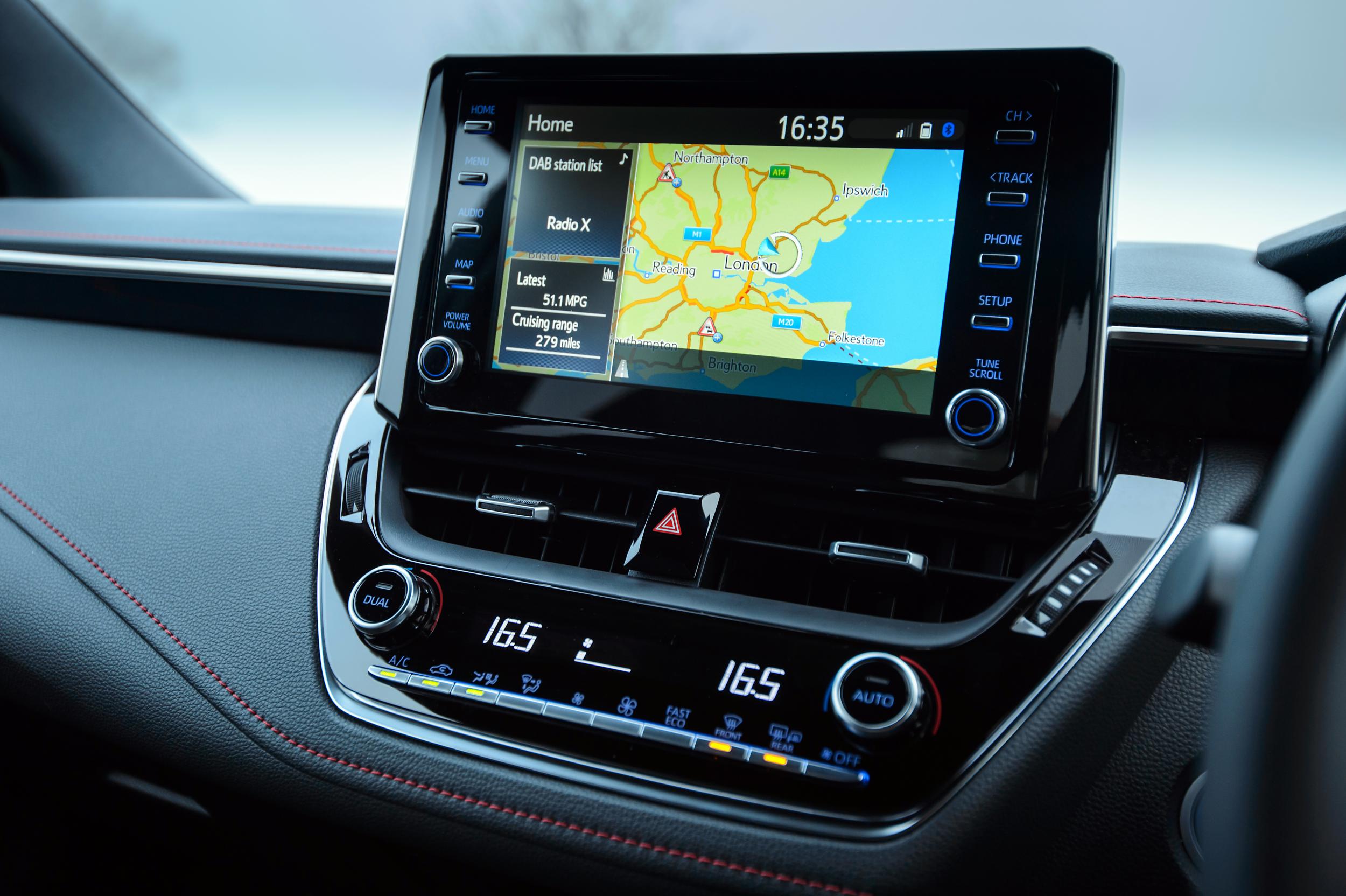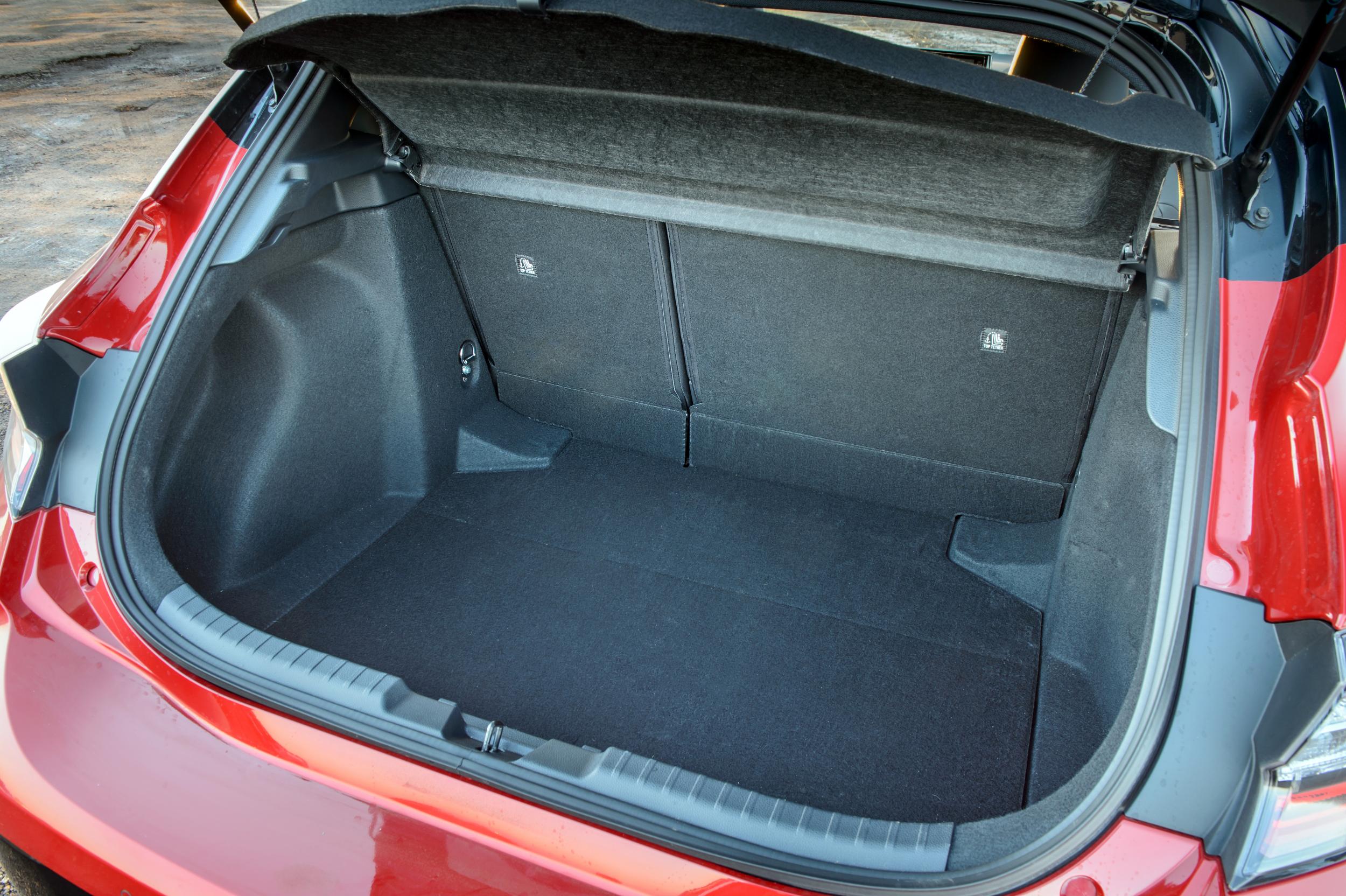Car Review: Toyota Corolla Hybrid – a car to surprise and delight
The Corolla does everything a Prius does, but in a smaller package, says Sean O’Grady – and in the absence of a fully electric infrastructure, going hybrid is a safer bet

Your support helps us to tell the story
From reproductive rights to climate change to Big Tech, The Independent is on the ground when the story is developing. Whether it's investigating the financials of Elon Musk's pro-Trump PAC or producing our latest documentary, 'The A Word', which shines a light on the American women fighting for reproductive rights, we know how important it is to parse out the facts from the messaging.
At such a critical moment in US history, we need reporters on the ground. Your donation allows us to keep sending journalists to speak to both sides of the story.
The Independent is trusted by Americans across the entire political spectrum. And unlike many other quality news outlets, we choose not to lock Americans out of our reporting and analysis with paywalls. We believe quality journalism should be available to everyone, paid for by those who can afford it.
Your support makes all the difference.If buying a diesel car is about as trendy as voting Conservative – both perceived rather toxic “brands”, if maybe unfairly – what to do?
Well, in the first place you should probably get yourself properly briefed on modern diesel engines, how much better they are for CO2 emissions, and thus the planet and climate change, and how much an up-to-date model might very well suit you if, say, you cover a large mileage or you’re one of those odd people who insists on going to the shops in a Range Rover.

You could, alternatively, go full-on battery powered electric, as about 1 per cent of British new car buyers do. The newest models, such as the Kia Niro, the Renault Zoe and Nissan Leaf have impressive ranges, with over 200 miles on one charge. They also enjoy low running costs and some government subsidies to offset the still high purchase price. There’s also the good old petrol engine.
You’d probably also think about a hybrid, the combined petrol engine and electric motor/battery system pioneered commercially so successfully by Toyota. And how – almost every Uber driver seems to run a Toyota Prius and these once futuristic vehicles are now commonplace. The reliability and durability of the lithium ion batteries, the software and the electric motors are all extremely well proven. The Prius was followed up by a range of Lexus luxury-oriented hybrid models, where silent all-electric propulsion added to the sense of serenity. Petrol/electric hybrids from Honda, Hyundai, Kia, Mitsubishi, Audi, BMW, Mini…

So it was always a bit of a disappointment that the Prius’s little sibling, the British-built Toyota Auris hybrid, was a bit of an underperformer on sales and reputation. So the successor gets the more familiar Corolla badge – best-selling car nameplate in history – some sharper styling and various technical improvements to help it make a better case for itself against the Ford Focus, Vauxhall Astra and VW Golf, the default choices in this sector of the market. The Peugeot 308, remarkably refined, will beat the Corolla in cabin ambience and atmosphere though, apart from when the Corolla goes full-electric silent; and the Honda Civic is an even smoother drive.
Does it work? Yes, and the Corolla does everything a Prius does, but in a smaller package. That means that it is fairly well packaged, but the batteries still need to be stowed somewhere, and that bites into boot space, which is very modest, and reset passenger knee room, again a bit of a squeeze if the front seats have to be pushed back. To be honest, a lightly used Prius might be a better bet.

The strengths though are still there. Depending on driving style you can get perhaps 30 miles in electric vehicle mode – completely emissions free. The Corolla is even more efficient at reclining energy wasted in, say, braking or high speed cruising, and using it either to pootle silently round town or to add impressive low speed torque and rapid acceleration from rest or to jump from cruising up to motorway speeds. The on-paper stats look a bit flat, but it does respond when you demand it.
The spec
Toyota Corolla Hybrid
Price: £27,345
Engine: 1.8 4-cylinder petrol +electric; CVT auto
Power output (bhp@rpm): 120@5,200
Top speed (mph): 124
0 to 60 (secs): 9.3
Fuel economy (mpg): 55
CO2 emissions (g/km): 83
It’s a fairly tidy drive too. As always the constant velocity transmission is a bit slow to pick up speed compared to a traditional automatic box or a manual gearbox. But for handling and road holding the Corolla gives little away to its more conventional rivals. Indeed, if you plonk it into Sport mode with the transmission in “B”, for all-electric “boost”, the Corolla transforms into a bit of a warm hatch. That, by the way, is with the 1.8-litre petrol model; the 2-litre variant will take you closer to GTi territory. An exciting Toyota hybrid? Strange, but true.
At any speed and in any mode, the switch between the varying ratios of petrol engine and electric motor power is utterly seamless in the Corolla: you need to keep an eye on the little graphic display and the rev counter to tell what is going on under the bonnet.

Hybrids such as this, and those models such as the Mitsubishi Outlander with plugin option from the mains (lacking on the Corolla), will probably fade away as fully battery-powered technology improves – but it will take time.
The pure electric car still presents problems for the many people for whom home charging is simply impractical – those in flats, terraced houses and places without a drive. For them it is difficult, if not impossible, for a car to be plugged securely and legally (ie without traipsing wires across the pavement). Given that I doubt any government will have the desire to instal charging points on every street in the kingdom, hybrids may be around for a while longer.
Join our commenting forum
Join thought-provoking conversations, follow other Independent readers and see their replies
Comments